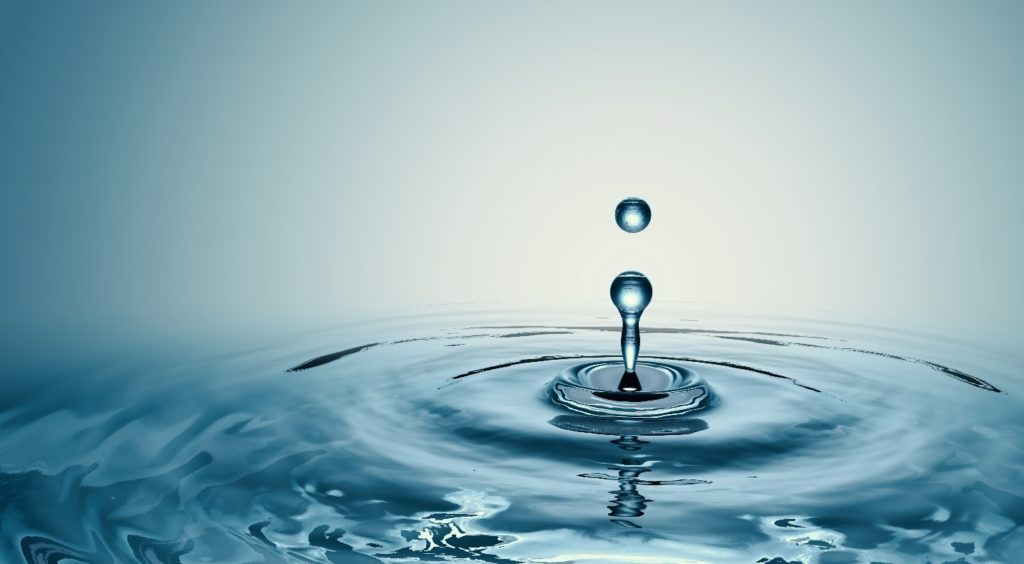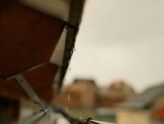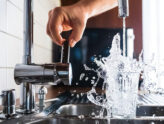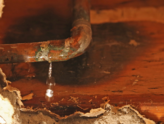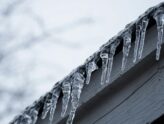You might have heard about water being soft or hard either from your plumber or through a friend or family member. Although this might appear unusual given that water rarely looks or feels different as a transparent liquid, water being hard or soft actually refers to its composition.
So, what exactly is the difference between hard and soft water? And does it matter when it comes to the plumbing in your home or business? In this post, Caldwell Plumbing explains everything you need to know about hard water and its impact on your entire plumbing system, from pipes to basins.
What is Hard Water?
As a definition, hard water is water that contains rock and metal salts. Given that water is held and transported through reservoirs and pipes underground, it frequently comes into contact with different types of rock. Depending on how easily the rock dissolves, water naturally picks up small amounts of it as it travels through pipes and into our homes. Water with higher levels of these amounts are known as hard water.
The deposits of rock are formally known as minerals and ions. Examples include calcium and magnesium, minerals you might also happen to find in the grocery store or pharmacy. Though the idea of hard water might sound off-putting and dangerous for consumption, drinking hard water actually offers some health benefits. Due to its high mineral content, the calcium and magnesium in hard water is excellent at helping the body to build strong bones and muscles. Therefore, there are no dangers to consuming hard water.
Where is Hard Water Common in Ontario?
Whether your water is hard or soft greatly depends on your local geography, with significant differences in water hardness across the entire of Canada. This is because each environment has its own geology, meaning the rocks both on and under the ground are different.
When it comes to working out if your water is hard or soft, analysts usually measure the concentration of calcium carbonate in the water. If it is found that the concentration is lower than 60mg/l (milligrams per litre), it means your water is soft. On the other hand, if its above this number, then the water is considered hard. At even higher levels such as 180mg/l, this means the water is very hard.
Across Ontario, water hardness varies significantly. For example, hard water is fairly common among cities in southern Ontario, while soft water is more frequently found in the north of the province.
| City / Town | Mg/l |
|---|---|
| Ajax | 125 |
| Bowmanville | 125 |
| Courtice | 125 |
| Markham | 128 |
| Oshawa | 125 |
| Pickering | 137 |
| Scarborough | 142 |
| Stouffville | 290 |
| Toronto | 121 |
| Uxbridge | 186 |
| Whitby | 137 |
Does Hard Water Affect My Plumbing?
Despite the health benefits hard water can bring, it does come with some setbacks.
Because hard water contains mineral deposits from rock, it is much more likely to build-up and negatively interact with both pipes and plumbing appliances. This puts additional strain on items such as showers, dishwashers, and kettles, which unfortunately have a reduced lifespan due to frequent exposure to hard water.
If you have hard water on your property, you might experience the following issues:
- Limescale, a chalky substance, appearing in appliances
- Dark or brown stains appearing in plumbing
- Clogged pipes
- Clothes being more difficult to wash
- Skin and hair irritation
Soften Hard Water with a Water Softener Installation
If you are finding hard water being a nuisance on your property, it can be fixed. By installing a water softener into your plumbing, you can benefit from clean water that is gentle on the skin and on your appliances.
Water softeners can take several hours to install and can be difficult to do alone, which is why we strongly recommended contacting your local plumber to help handle the job. At Caldwell Plumbing, we have been helping homes across Durham Region benefit from softer water for many years.
If you are looking to have a water softener installed on your property – contact us today!

